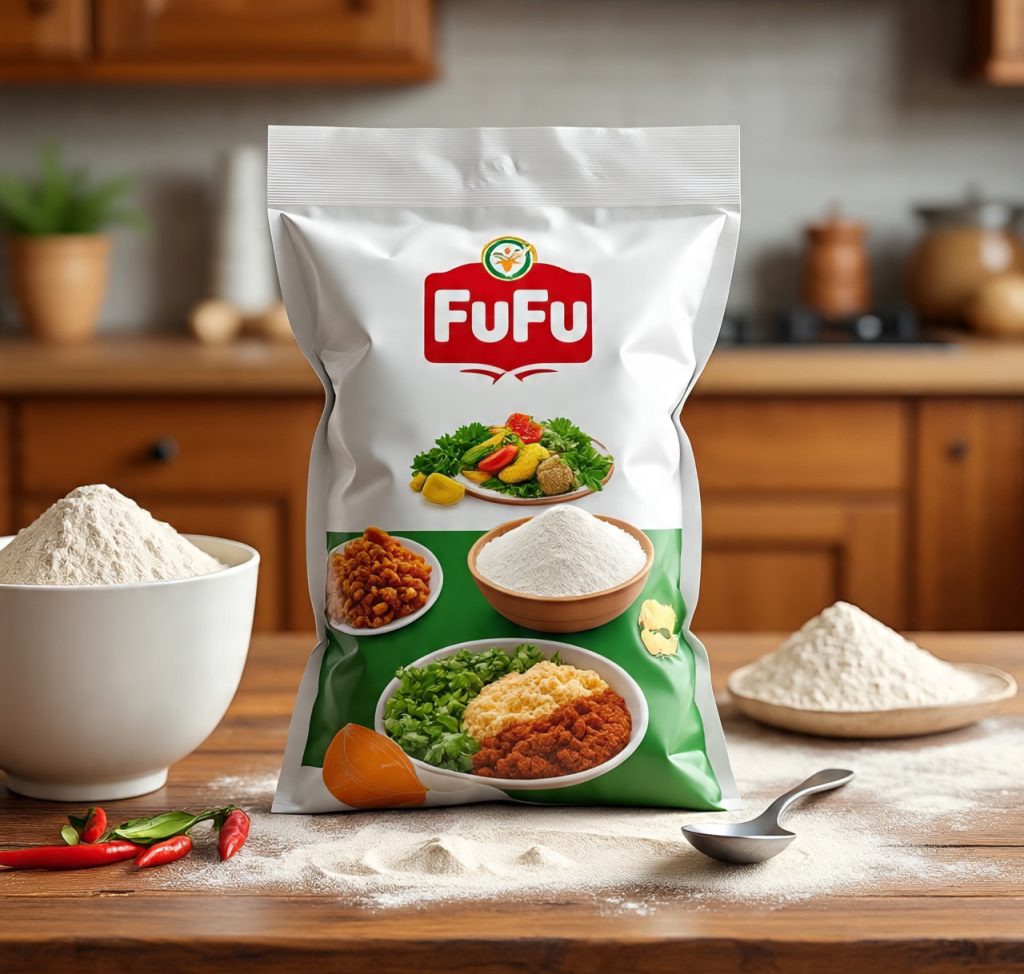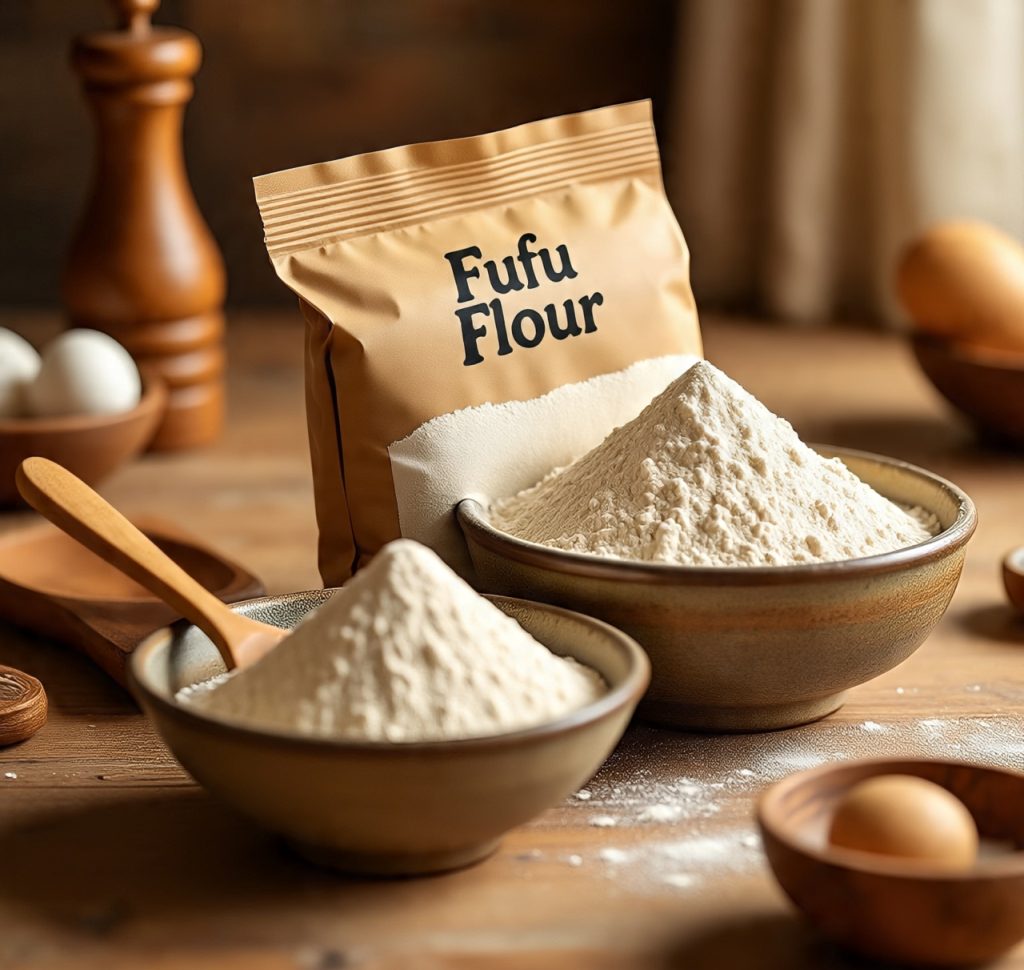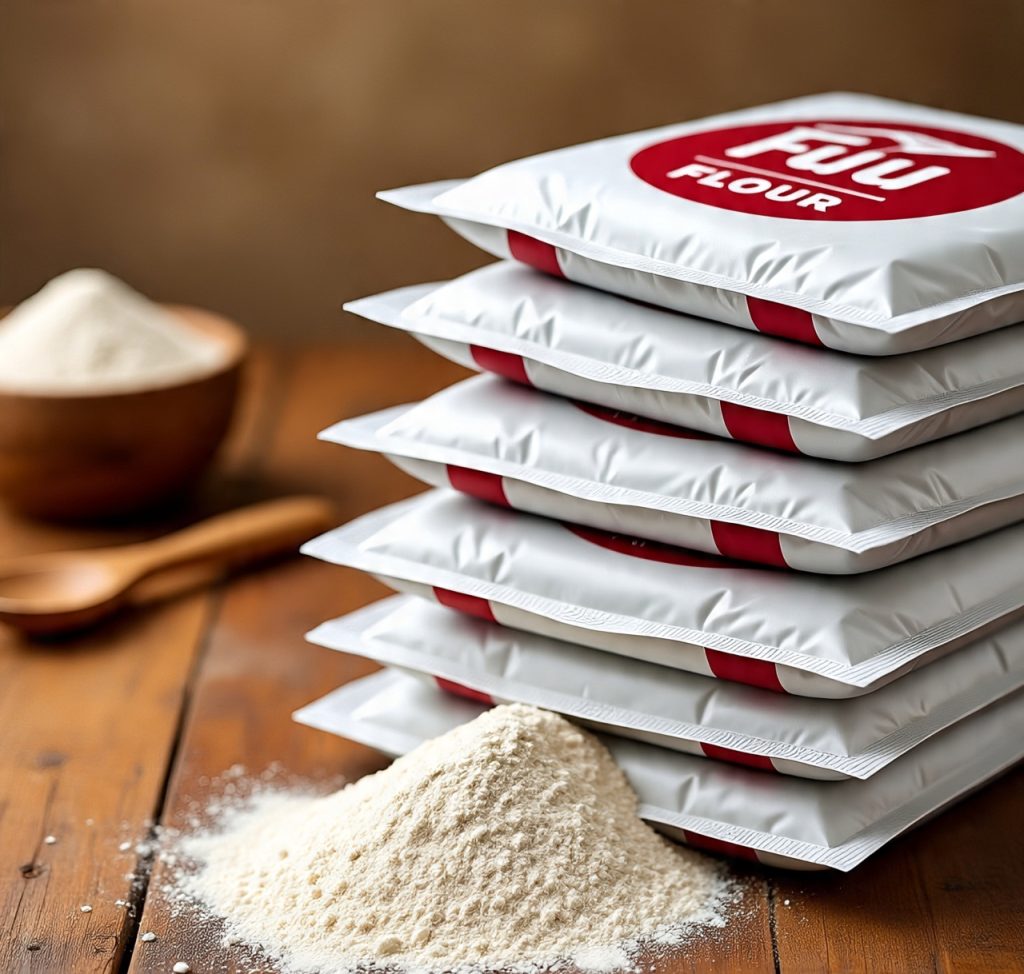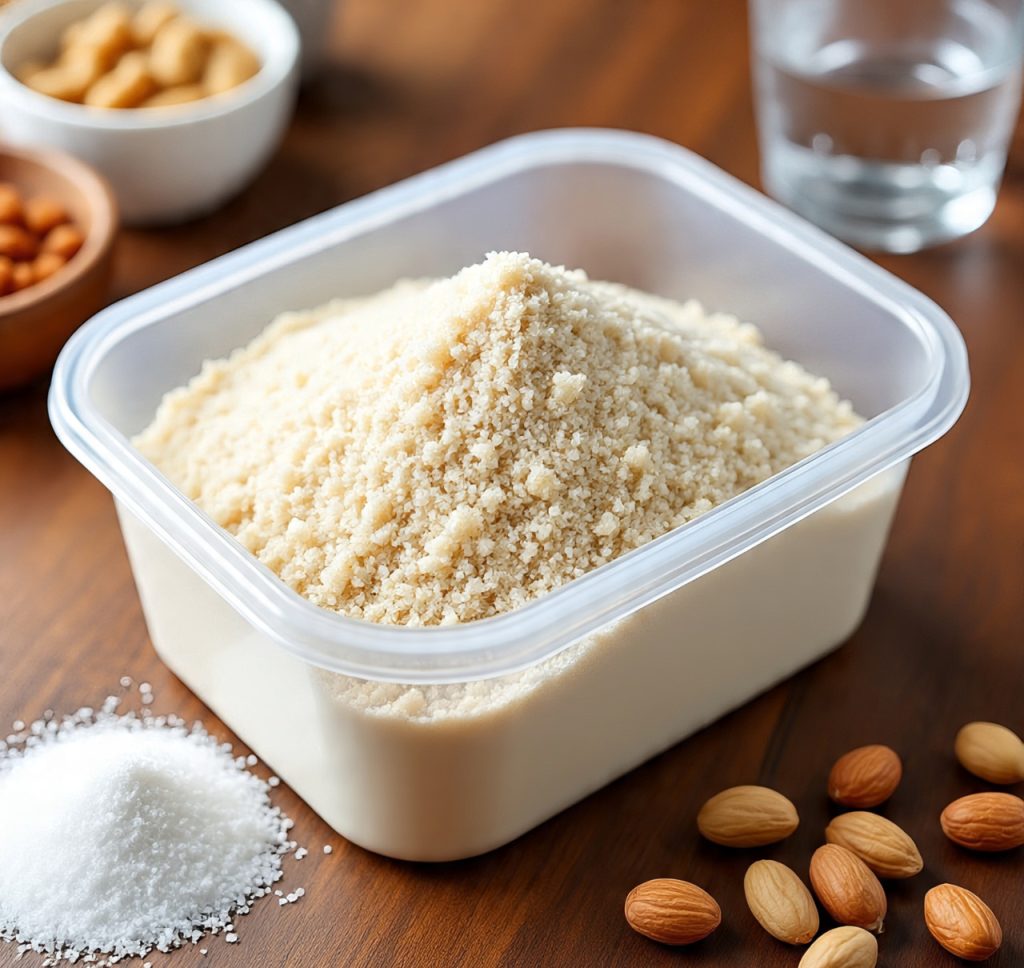Fufu flour is a processed, ready-to-use powder made from cassava, yams, plantains, or a blend of these starchy crops. It is a staple in many African households and is consumed as a smooth, elastic dough served with soups and stews.
The export of fufu flour has grown significantly due to African diaspora demand and the rising global interest in ethnic, gluten-free, and plant-based foods. Its convenience, long shelf life, and cultural significance make it a valuable product in international markets.

Why Fufu Flour is in High Demand
-
Convenience – Eliminates the need for traditional pounding or fermentation.
-
Long Shelf Life – Packaged for extended storage without preservatives.
-
Nutritional Benefits – High in carbohydrates and energy, gluten-free.
-
Cultural Heritage – Essential for African meals and festivities worldwide.
Common Uses of Fufu Flour
-
Staple Meal – Prepared into a soft dough served with soups like egusi, okra, and vegetable soup.
-
Blended Dishes – Mixed with other flours (yam, plantain) for unique flavors.
-
Ethnic Restaurants – Used in African and Caribbean restaurants abroad.
-
Home Cooking – For quick and easy preparation of traditional meals.
Popular Export Types of Fufu Flour
-
Cassava Fufu Flour – Made purely from fermented cassava.
-
Plantain Fufu Flour – Naturally sweet and rich in potassium.
-
Yam Fufu Flour – Light in texture and mildly flavored.
-
Mixed Fufu Flour – A combination of cassava, yam, and/or plantain for balanced taste.

Major Importing Markets
-
North America – USA, Canada (ethnic food stores and supermarkets).
-
Europe – UK, Germany, Netherlands, France (African and Caribbean markets).
-
Middle East – UAE, Qatar, Saudi Arabia (diaspora and specialty stores).
-
Asia-Pacific – Australia, Malaysia, Singapore (specialty and ethnic markets).
Export Processing Steps
-
Selection – Use mature, healthy cassava, yam, or plantains.
-
Peeling & Washing – Remove dirt and outer skin.
-
Processing – Fermenting (for cassava), cooking, and drying.
-
Milling – Grinding into fine powder.
-
Sieving – Ensuring smooth, uniform texture.
-
Packaging – In moisture-proof, export-grade bags.
Quality Standards & Export Requirements
-
Moisture Content – Ideally below 12% to prevent spoilage.
-
Safe Cyanide Levels – Especially for cassava-based fufu.
-
Food Safety Compliance – Must meet HACCP, ISO, and importing country’s food regulations.
-
Proper Labeling – Nutritional facts, expiration date, and ingredient list.
Why Fufu Flour Export is Profitable
-
Cultural Loyalty – Consumed daily by millions in diaspora.
-
Growing Global Recognition – Featured in African cuisine promotions worldwide.
-
Premium Pricing in Foreign Markets – High value in ethnic food segments.

IMEN GREEN GLOBAL LIMITED Advantage
We export premium-grade fufu flour made from carefully selected crops, processed under strict hygiene and safety standards to meet global market requirements.
We offer:
-
Cassava, Yam, Plantain, and Mixed Fufu Flour.
-
Bulk Supply and Retail Packaging.
-
Custom Branding for International Buyers.
-
Worldwide Shipping with Timely Delivery.
Conclusion:
Fufu flour is not just a food product—it’s a cultural symbol with rising international demand. Exporters who focus on quality, authenticity, and efficient logistics can build a thriving, repeat-customer market.






